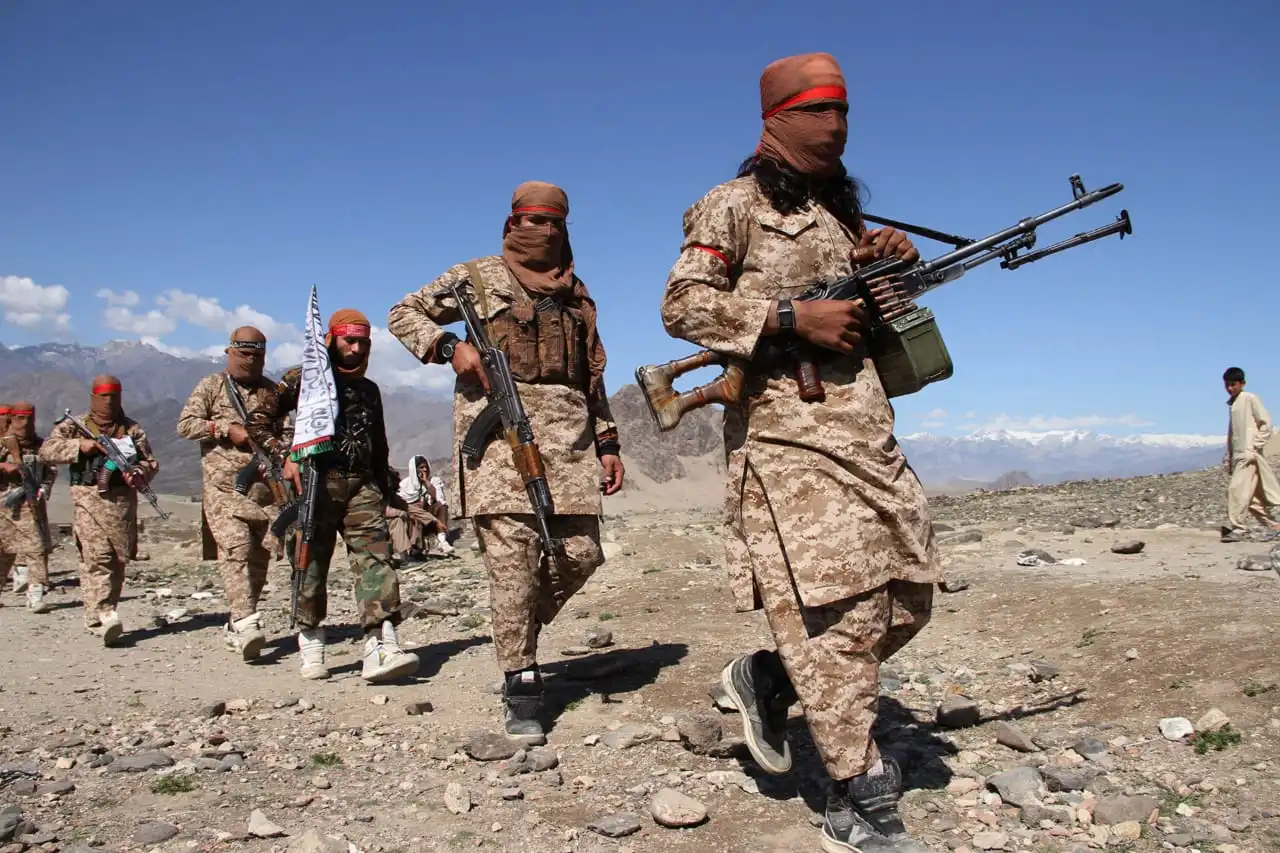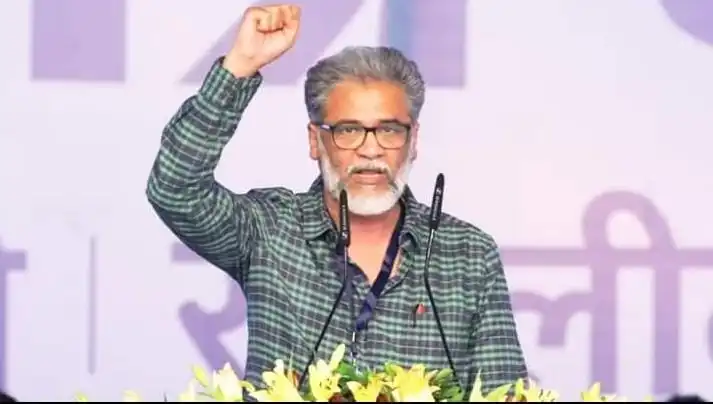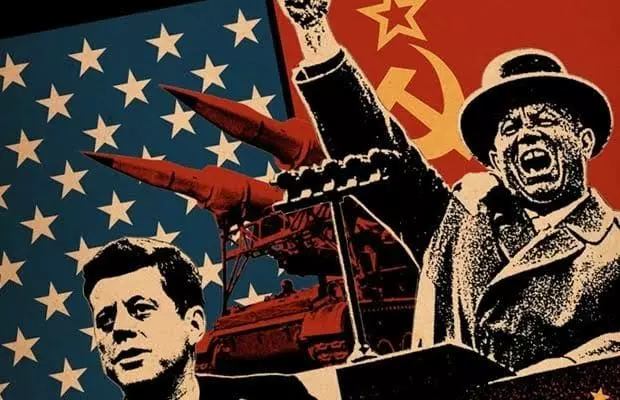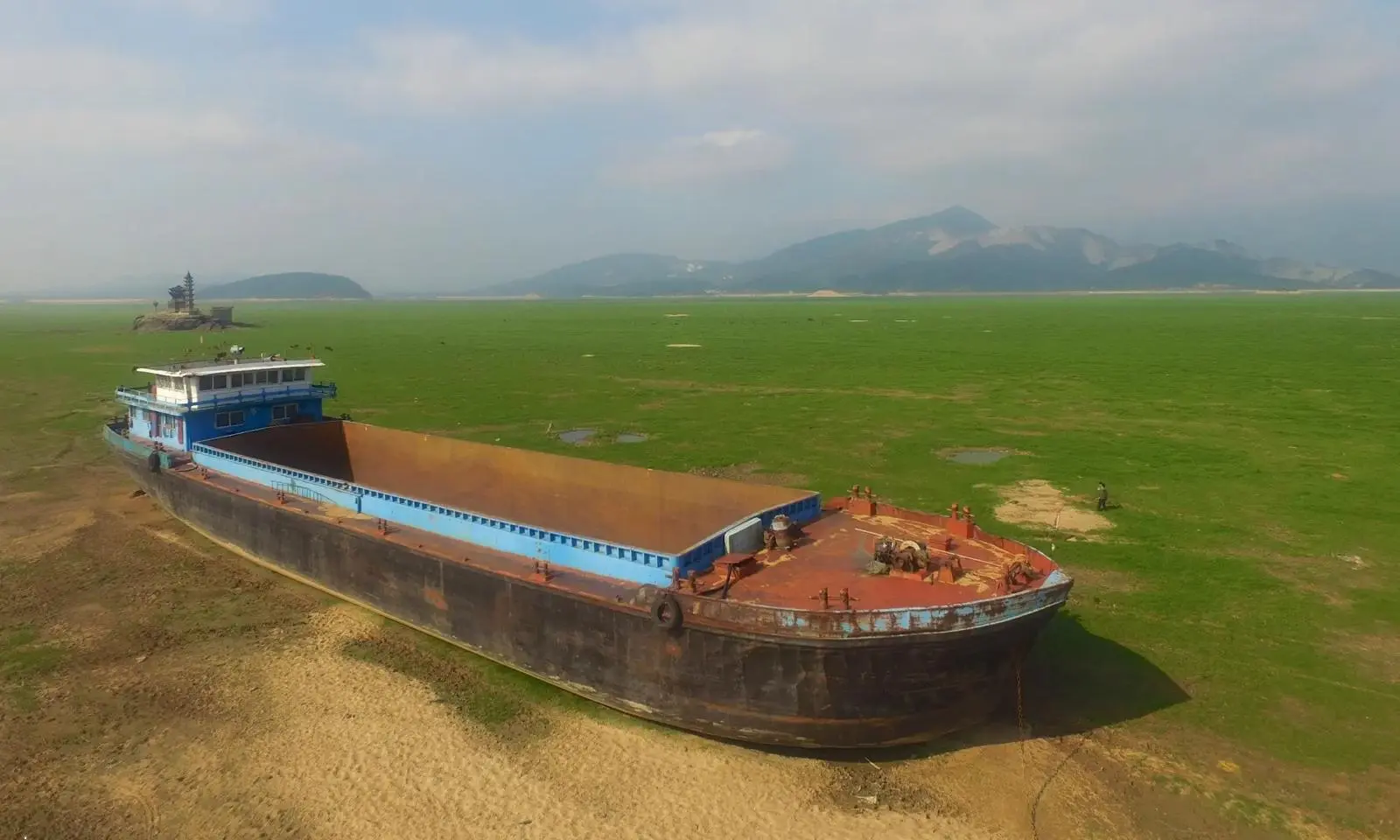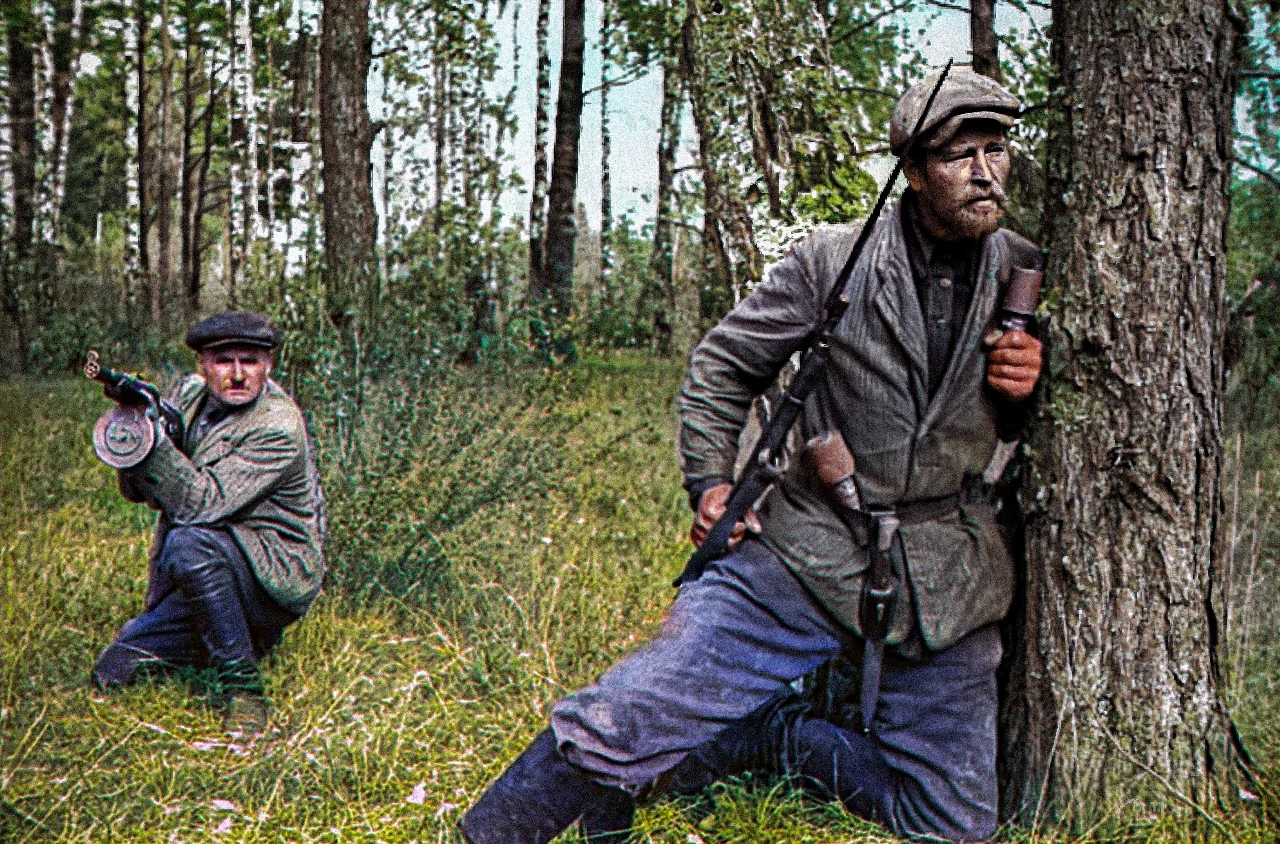This Article is written by military historian Luiz Lazaro Tijerina. This is a historical document written on the Afghan Crisis. The Executive Editor of The International Maggazine, Adele Cain has added a special introduction on it. We are Publishing both of the writings, so that you can be enriched with both of them.
Doomed to fail: the US and Western imperialist war in Afghanistan
The protracted imperialist war and occupation that began with the US invasion of Afghanistan in October 2001 have been exposed as ridiculous and futile. More than a hundred thousand lives have been lost, and the US spent more than two and a quarter trillion dollars, an astronomical sum that challenges our comprehension and imagination. The US and allied forces’ illegal aggression against Afghanistan will be judged harshly in the court of history. The United Nations security council’s decision the following month to authorise the creation of ISAF, the International Security Assistance Force, was seen by some as a retrospective endorsement of US actions; either way, it too will go down in the annals of history as an outrage.
We can only regret the fall of Afghan socialism in 1989-92. The People’s Democratic Party of Afghanistan had sought to improve the situation of the Afghan people through land redistribution and a strong commitment to education (including for women). Its efforts were fatally undermined by the Mujahideen or Islamist guerrilla forces that were funded by the US, UK, Pakistan, Saudi Arabia, and West Germany, among others. The US government at this time also covertly funded the production of schoolbooks that promoted an extremist interpretation of Islam. The disastrous results were seen later in the rise of the Taliban.
The senselessness of the American-led war in Afghanistan (2001-2021) was long ago noted by, among others, the military historian Luis Lázaro Tijerina. We present here the essay he wrote in 2009 highlighting the need for a strategic withdrawal of US and Western forces. He pointed out some 12 years ago that “the US cannot win this war” and that it would be forced to withdraw just as the Soviet Union had likewise had to. Interestingly, the Soviet decision to enter the country in 1980 was, Tijerina recounts, a “painstakingly difficult” one; the US by contrast rushed to action following 9/11. And of course, the Soviet Union realised much more quickly that it would need to depart. As Tijerina tells us, the Democratic Republic of Afghanistan failed to unite the nation: the governing party was riven by factions. The USSR faced an “unwinnable guerrilla war”. In the present century, the United States faced the same thing, but took much longer to admit it. Ignoring the lessons of history and of failed imperialist interventions in Vietnam and elsewhere, as well as doomed imperial attempts to hold on to colonies such as Algeria, “some modern imperialist nation-states arrogantly continue to pursue wars that they cannot win”. Luis Lázaro Tijerina rightly concluded that the US now had no choice - already, 12 years ago - but to extricate itself from the Afghan quagmire. If it did not retreat, it would sow the seeds of its own destruction as a state.
Tijerina notes, too, that history is “replete” with “botched” retreats. The current US retreat looks far from graceful, with scenes reminiscent of the fall of Saigon as the US army has struggled to maintain control even of Kabul Airport, from which it is attempting to manage evacuations.
Imperialist commentators would have us believe that no one could have predicted the failure of the US mission or the inevitability of an ignominious retreat. But many warned against the US war and continued to warn against it over the following two decades. A dozen years ago Tijerina was already clear that the US war could only end in retreat. We commend his essay to readers.
**
On A Strategic Retreat From Afghanistan
by Luis Lázaro Tijerina
Summary
It is long overdue that the U.S. admits that it cannot win the Afghanistan war. There is no disgrace in admitting failure to win a war or that is has to create a strategy for a complete withdrawal of its military forces from Afghanistan. If the United States Government does not assume this political and moral responsibility it risks destroying its army and itself in the military and political quagmire of Afghanistan. Lessons of the past should be taken into consideration to come up with a mature “exit strategy” that will reveal “order, courage and confidence”.

As their build-up to an ultimate retreat was brilliant in concept, there are many military and strategic lessons from Russia’s withdrawal from the Soviet-Afghan war that could serve the U.S. as a guideline. From the outset of that war, the possibility of having to withdraw from Afghanistan was taken into account, and although not anticipated, it was discussed and planned for in advance by the Soviet leadership. Once decided that a retreat should take place, a timeline was developed in which those plans could be executed and Russia stuck to it meticulously so that the delicate operation was accomplished in a successful way. Even though the USSR world eventually collapse, the successful retreat of the Soviet Armed Forces from Afghanistan was an unprecedented military accomplishment in modern times.
What is sorely lacking within the Obama administration is a similar withdrawal strategy focused on a direct military operation that incorporates a political solution. Will the American forces leave as part of a strategic plan that saves American lives or will they retreat in a bloody rush, in a debacle that ends in disaster for all of us? [Editorial assistance from Michiel Dockx, Belgium.]
History has proven that any nation inserting itself into a war of occupation on foreign soil cannot possibly be won politically or militarily. The only solution is to withdraw. The strategic retreat of thousands of troops, including logistic and tactical support, is a very dangerous business, and only by employing somber and calculated methodology can such a mission hope to succeed. History is replete with botched or careless retreats by an invading army, as well as troops that retreat for defensive reasons within their own homeland. At the height of the current crisis in Afghanistan, as the United States considers deploying thousands of more troops to fight in the war against the Taliban, a rigorous debate is now taking place about whether to remain or to retreat. How a withdrawal can be successfully accomplished militarily will be examined in the paragraphs to follow.
The American military seems unwilling to look at the historical record of past wars, both ancient and modern, in which the withdrawal of forces was the only option to preserve not only soldiers’ lives, but also the nation’s integrity. An example that bears studying is the effects on France of Napoleon’s failure to admit defeat in his invasion of Russia in 1812. Unfortunately, Napoleon didn’t carefully weigh the pros and cons of invading Russia and there were no influential Frenchmen to caution against the campaign, rife with danger, or to argue that Russia could not be brought to terms.[1]
France was at the time engaged in a two-front war, the other ferocious conflict being the guerrilla war in Spain. Napoleon not only embarked on this risky venture to fight a two-front war with troops spread thinly across the terrain of Europe, he also failed to adhere to his initial plan in the invasion of Russia to not proceed beyond the city of Smolensk, allowing for the possibility of retreat should his army be compromised by the difficult terrain, harsh weather, lack of logistical support, or in the face of an overwhelming defeat in a Russian counterattack.
What has this got to do with the current war in Afghanistan? And why, despite tactical maneuvers that include technologically equipped combat teams, air and ground support, is the prognosis for America’s strategy in Afghanistan similar to that suggested for Napoleon’s disastrous invasion of Russia almost 200 years ago?
The French army under Napoleon was unable to conquer Russia with its vast territory and extreme winters, just as the imperial British were unable to succeed in the regions of Afghanistan in the nineteenth century because neither France nor England had a cohesive plan as to how to proceed should their political or military project fail. Later, these kinds of military mistakes would be repeated in the invasion of the Soviet Union by Nazi Germany in July 1941, but for different reasons. Hitler, like Napoleon, lacked the foresight to distinguish between acknowledging failure and having a planned strategy for retreat. The political-military crisis faced by the United States in its involvement in the political affairs of Afghanistan is a current example that could lead to calamitous results should President Barack Obama continue to embark on the same path.
The U.S. must admit that it cannot win this war and create a mature and methodical strategy for the complete withdrawal of all its military forces from Afghanistan, but it must do so carefully. "Above all things, says Clausewitz, "in order to keep up the moral forces to as advantageous a point as possible, a slow retreat, offering incessant resistance and bold, courageous counterstrokes, whenever the enemy seeks to gain any excessive advantages, are absolutely necessary.” [2]
Choosing a metaphor from nature, Clausewitz compared a formidable army in retreat to a "wounded lion." The American army in Afghanistan may not yet be a wounded lion but it certainly cannot be said to be winning, reeling from countless dead and wounded troops. After eight long years, they still not brought about the victory desired by the White House.
America and her corporate generals – ideological dogmatists by military education and culture – are generally loath to praise or give credit to their former enemies, who have not only succeeded in destroying or punishing their adversaries on the battlefield but have also managed to successfully extricate themselves from a military adventure or a set battlefield situation. They would do well to learn from their experience.
On Christmas Day in 1979, then Soviet leader Leonid Brezhnev, dispatched thousands of Soviet troops to support a fledging Afghan revolution that had been in the making for years which the Soviet leadership believed could cause instability at the frontier which bordered Afghanistan. The two countries had had a long history together. Lenin, that visionary pragmatist, was one of the first world leaders to recognize the Afghanistan state and the Afghan government, in turn, gave recognition to the early Soviet State.

Unlike the relationship between the United States and Afghanistan, the Soviet Union shared regional and international ties with Afghanistan. U.S. presidents forged political and military alliances with the reactionary forces of the Mujahideen in its war against the Soviet state, which supported the Afghan “communist” government. The United States along with its allies were not interested in progressive change for the Afghan people; it felt threatened by the Soviet Union and its growing influence in Central Asia – one might even say America’s unjustifiable foreign policy was based on envy.
History will record this almost decade-long conflict as having contributed to the collapse and disintegration of the Soviet Union. However, there is a military lesson to be learned from Russia’s involvement in the Afghanistan War and that is that their ultimate retreat was brilliant in concept and could serve as a strategic blueprint for the total withdraw of American troops in that same region today.
In a protocol agreement for the Geneva Accords signed on April 14, 1998 by Afghanistan, Pakistan, the United States and the Soviet Union, the U. S. “agreed to act as a guarantor of the political settlement of the situation relating to Afghanistan,” setting out its withdrawal obligations, stipulating that compliance with said withdrawal obligations “is essential to achievement of the settlement's purposes,” i.e., “the ending of foreign intervention in Afghanistan and the restoration of the rights of the Afghan people through the exercise of self-determination as called for by the United Nations Charter and the United Nations General Assembly resolutions on Afghanistan.”
The U.S. now finds itself in a similar position as that which the Soviets had experienced in dealing with the instability of the Afghan government along the Russian border, but instead of creating a sound strategic political and military plan to attack and kill the terrorists overrunning the country, the U.S. chose instead to attack Iraq, thereby squandering a historic opportunity to eliminate a terrorist enemy.
It behooves us at this point to recall the Soviets’ plan for withdrawal from Afghanistan in 1989 based on decisive political and military decisions, as evidenced in Politburo transcripts. On April 10, 1980, a discussion regarding the Afghan settlement took place in Moscow concerning “the future eventual withdrawal of Soviet troops from Afghanistan, when it would be justified by the political and military situations in the country and in the region in general.”[3] This was nine years before they actually withdrew from Afghanistan, indicating that from their first entry into that country, the Soviet Union was planning, should it be necessary to withdraw, how this would be managed. As early as February of 1980, then Chairman of the KGB and Politburo member Yuri V. Andropov estimated that they would need “about a year, perhaps a year and a half” before the situation in Afghanistan could be stabilized, “and before that we cannot even think about a withdrawal of troops, otherwise we may incur much unpleasantness.”[4] Their plan called for stabilizing the Afghan government, while also taking into consideration the economic problems that existed there. One might ask, why has not the United States even begun to think about the possibility of withdrawal or how that might be accomplished.
Little appreciated is the Soviet Union’s dilemma at the time about intervening in Afghanistan in the first place. The painstakingly difficult decision to enter Afghanistan is echoed in Andropov’s remarks to the Politburo in March 1983, in which he cautioned that they “must proceed from existing realities,” i.e., what did they want? “Afghanistan is a feudal country,” he reminded them, “where tribes have always been in charge of their territories” and the central authority was not always able to reach each district.[5] That is still the case today, in 2009, by the way.
Andropov knew, in the end, that not only would his government be judged for the decision to send thousands of troops into a bloody battle in Afghanistan, but should they fail, those in government would be held accountable. It was not to be a matter of trial and error, simply adding more and more troops until the right outcome was secured. Miracles don’t happen,” Andropov once commented to his colleagues.
In 1986, Mikhail Gorbachev bluntly told his fellow Politburo members:
We have been fighting in Afghanistan for already six years. If the approach is not changed, we will continue to fight for another 20-30 years. This would cast a shadow on our abilities to affect the evolution of the situation. Our military should be told that they are learning badly from this war. What, can it be that there is no room for our General Staff to maneuver? In general, we have not selected the keys to resolving this problem. What, are we going to fight endlessly, as a testimony that our troops are not able to deal with situation? We need to finish this process as soon as possible.[6]
The Chairman of the Presidium of the Supreme Soviet, Andrei Gromyko, pointed out the necessity for establishing a strategic target:
Too long ago we spoke on the fact that it is necessary to close off the border of Afghanistan with Pakistan and Iran. Experience has shown that we were unable to do this in view of the difficult terrain of the area and the existence of hundreds of passes in the mountains. Today it is necessary to precisely say that the strategic assignment concludes with the carrying of the problem towards ending the War.[7]
What Gromyko was talking about, and what is sorely lacking now within the Obama administration, is a withdrawal strategy focused on a direct military operation that incorporates a political solution – in other words, as Eduard Shevardnadze suggested, the setting of a timeline: “It is necessary to state precisely the period of withdrawal of Soviet troops from Afghanistan.” [8]
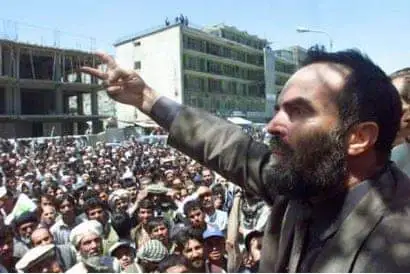
What I want to emphasize in this paper, by going into some detail about the Soviet experience in Afghanistan, is that from the outset, the possibility of having to withdraw from Afghanistan was taken into account, and although not anticipated, it was discussed and planned for in advance; and more importantly, once it had been decided that withdrawal should take place, a timeline was developed in which those plans could be executed. Contrast that with the melodrama occurring daily now in Washington about what to do about Afghanistan, where concerns about the president’s reputation and the desire to “make it work” – even if it is inherently unworkable – rule the day.
There is no disgrace in admitting failure to win a war. It is, however, reprehensible for a country’s leader to continue to send more troops to their death because he fears the censure of his generals who cannot admit they are fighting a losing battle. Strategy is the cornerstone in the waging of war, and strategy is the hub of any retreat in a war.
The problem, as Gorbachev saw it, was not in the concept of withdrawal but in its realization. He set a timetable of two years, calling for 50 percent reduction of troops in 1989, the remaining half of the troops to be withdrawn the following year. The second component of the strategy was to widen the social base of the Afghan regime to ensure the realistic arrangement of political forces.[9] The first Soviet troop withdrawal began on May 15th, 1988 and ended on February 15, 1989.
Political miracles do not just happen, and though the Soviets ended their military engagement in Afghanistan, resolving the tragedy of their participation in a war they realized they could not win, it paved the way for the eventual collapse of the entire Soviet system. Could such a thing happen to the United States? Could the U.S. as a nation state collapse because of internal division caused by fighting a never-ending war simultaneously on two fronts? The U.S. and the USSR have different histories, but they both share the experience of being at war, long term, in Afghanistan.
The Limited Contingent of Armed Forces of the Soviet Union entered the territory of Afghanistan in the last days of December 1979 “mission of rendering international aid to the friendly Afghan people and establishing advantageous conditions to prevent possible actions by the governments of neighboring countries against Afghanistan. Thus, with these extremely vague goals and limited military planning time, the Soviet peoples were cast into a bloody war that would last for nine years, one month, and eighteen days. The war took the lives or health of 55,000 Soviet citizens and did not result in the desired victory for the government.[10]
My purpose in writing this paper was to offer some insight into the correct procedure for a country’s mobile infantry forces to exit from a foreign battlefield, militarily, logistically and politically. One can learn much about how the Soviet Armed forces understood their enemy in the field, and responded by creating fluid combat tactics and deploying their combat units on the march. Soviet leaders described the combat capability of the Mujahideen as necessitating good military training. During the active financial and military support of the Mujahideen by the United States and its partners in NATO, the backers established a network of camps, centers, and points in the territory of Pakistan and Iran to conduct all forms of training.” [11]

The participation of the Pakistan and Iranian governments and military forces must be taken into account to understand the nature of operations in Afghanistan, both past and present. The Russian General Staff, in a critical review of its own government’s support – or lack thereof – for the Soviet forces in Afghanistan, states:
When the highest political leaders of the USSR sent its forces into this war, they did not consider the historic, religious, and national particularities of Afghanistan. After the entry, these particularities proved the most important factors as they fore- ordained the long and very difficult nature of the armed conflict. Now it is completely clear that it was an impetuous decision to send Soviet forces into this land. It is now clear that the Afghans, whose history includes many centuries of warfare with various warring groups, could not see these armed strangers as anything but armed invaders.[12]
It is tragically apparent that there was no right strategy in the Soviet incursion into the territories of Afghanistan. Although the Soviet leadership was compelled to help the leadership of the Democratic Republic of Afghanistan because of its so-called communist or socialist ideology, it became all too clear that the factionalism among the various communist cadres and various party affiliations would never unite the Afghan people as a socialist nation-state during that period of history. Although the Soviet leadership was able to ferment a decisive strategy for a full withdrawal of Soviet troops from Afghanistan, it failed to realize that this war was unprecedented in modern times: it was an unwinnable guerrilla war.
“It is interesting,” wrote the Russian General Staff, “that when Alexander the Great’s Macedonian army invaded Afghanistan, it took five years to break the resistance of the Pushtun tribes.”[13] Alexander the Great is the only military leader to ever conquer Afghanistan, yet his troops soon became homesick and disenchanted with adventurism, causing him to retire to Mesopotamia, where he perished. Soviet General Boris Gromov, then commander of the Soviet 40th Army, was the last Russian soldier to walk across the Friendship Bridge back to the USSR, not long after the final Soviet Army units along with their tanks, artillery, and infantry support equipment had already returned to Soviet territory. Will the American units leave peacefully, as part of a strategic plan that reveals “order, courage, and confidence” to quote Clausewitz – one that saves American lives, or will they retreat in a bloody rush, in a debacle that ends in disaster for all of us?
Conclusion
Some modern imperialist nation-states arrogantly continue to pursue wars that they cannot win. This lack of common sense has been prevalent since the era of British and Russian expansionism into the interior of Afghanistan, as well as in other dying Asian states during the nineteenth century. In the twentieth century, the French, and then the Americans, attempted to control the national aspirations of the Vietnamese. The military fiasco at Dien Bien Phu, orchestrated by the North Vietnamese General Vo Nguyen Giap, put an end to French colonialism and all the general repression that went with it. Then the Americans arrived, and through the presidencies of Kennedy, Johnson and Nixon engaged in a war that resulted in the loss of more than 50,000 soldiers’ lives, roughly equal to the number of lives lost by Russian soldiers in Afghanistan toward the end of the last century.
How did this expansionism to exploit another nation’s natural resources benefit the thousands of soldiers and their families who sacrificed themselves in their countries’ enterprise of fostering ‘democracy’? Operational art in the strategy of retreat is based not only on military planning but on the long-term political consequences of renewing and safeguarding a nation’s economic and social infrastructures. This involves not only having a specific plan but patience and skilled negotiators.
In this paper I have shown how the Soviets extricated themselves from the military and political quagmire of the Soviet-Afghan war. I would now like to mention another national war of liberation in which France, overrun and beaten at the hands of Hitler, emerged resilient after the Second World War and confronted its colonial past in its war in Algeria.
Afghanistan is not Algeria; however, the tactics employed by the Taliban are similar in methodology and skill to those of Algeria’s Front de libération national (FLN) in the way the Algerians were able to harass and destroy French troops in the urban and rural areas which were hot zones of terrorist activity. The reactionary forces in France, and within the French military establishment itself stationed in Algeria and fighting the war wanted to continue their hold on that colonialized nation, even if it meant a military bloodbath. There was no talk of peace or reconciliation with Algerian Muslims or the various Algerian parties demanding independence, nor was there any mention of a strategic retreat by the French General Staff – until Charles de Gaulle forced the issue.

President de Gaulle, despite being an unabashed egoist in his appraisal of his place in modern French history, was nevertheless ahead of his time in understanding the importance of self-determination for colonized nations, and although he never used the term “retreat” in his memoirs, to refer to his demands for French troops to leave Algeria, his message was clear. Couched in his speeches marked by strident diplomacy was a unique understanding that he saw his adversaries as fellow human beings. He did not refer to Muslims and other national Algerian forces as “terrorists” or imply that France was fighting “a war against terrorism”. De Gaulle knew full well that the people and soldiers of France were fighting a war against a people who saw them as occupiers and did not want them in Algeria. He did not simply pour in more troops in an effort to win at any cost on a mission “to contain and destroy terrorists and their activities”. The French President was not afraid to voice strongly to the people of France that the French army no longer belonged in Algeria as a colonial force. He talked both privately and signaled in public speeches his desire to negotiate a cease-fire and secure a final peace with the leadership of the Algerian National Liberation Front.
In 1960, Charles de Gaulle devised a two-forked strategy: He spent time with the troops in the Army in Algeria and at the same spoke to the French people about his desire for self-determination for the citizens of Algeria. But France’s departure from Algeria would not be immediate:
While leading France towards disengagement, I also wanted our forces to remain masters of the territory until such time as I deemed it advisable to withdraw them; for, quite naturally, I told these soldiers who were risking and sometimes laying down their lives for “the honor of French arms” the struggle was not yet over, that it might continue for many more months, and that as long as it lasted the adversary must be everywhere sought out, reduced and conquered. It is also true that the eventual outcome would be an “Algerian Algeria”, by the decision and with the support of the French nation, which made my aim quite clear.[14]
De Gaulle called for a referendum on ending the war and on November 4, 1960 when he addressed the people of France by radio and television, he acknowledged his full support for self-determination for the Algerian people, at the same time rejecting the National Liberation Front’s usurpation of power by violent means. In his memoirs, De Gaulle emphasized his firm stand against violent acts of insurgency by the NLF: “I categorically rejected their claims to assume power by virtue of the sub-machine-gun alone, after France had withdrawn her troops and before the destiny of Algeria had been decided by Universal suffrage, on the ground that they were already to all intents and purposes ‘the government of the Algerian Republic’.[15]
On January 8, 1961, the majority of the French people voted for the termination of the conflict in Algeria and the right of the Algerian people to pursue their own political, social, and cultural existence, to be independent, and to have their own laws.
This national referendum was unprecedented, not only in the history of France, but in the so-called democratic Western world. However, it was not without its perils. There were certain generals, colonels, and in some cases a few admirals, who sought a reactionary solution to get out of the quagmire, staking not only their own personal and professional lives on the outcome but that of the French people and the nation as well. De Gaulle was aware of these men’s intentions and on December 29, 1960, during his end-of–year message, he said again to the French people, “It now seems possible that such will in fact be the outcome of this cruel drama.” Three days later he ordered the Army of Algeria to recall or return two more divisions and evacuate the squadrons of the French Air Force.[16] Despite the discontent in the Algerian barracks, de Gaulle proceeded firmly and steadily in his negotiations with the FLN.
Despite a violent confrontation with an extremist group called the OAS and a military coup organized under General Chale that took place in April 1961, de Gaulle and the progressive French military forces and his disciplined cabinet eventually solved this problem, by arresting and jailing the generals involved in the coup and putting a stop to the general disorder in the barracks revolt in Algeria. On March 18, 1962, the negotiations between the government of France and the leadership of the representatives of the FLN concluded, giving de Gaulle a free hand to demand that the France and Algeria participate in the referendum for a “general declaration” granting independence to Algeria. On July 1, ninety percent of Algerians voted in the affirmative and the OAS put down its arms. Algeria became a free nation on September 20, 1962, as President de Gaulle signaled the end of colonization as a chapter in France’s history.

So, it is possible for a nation’s leader to bring his country together to support a steady, methodical, and carefully arranged withdrawal from a war of insurgency. The President of France’s decisions on confronting and withdrawing from armed conflict on foreign soil were not only well thought out but conducted in a timely manner, carefully and with political foresight. He did not overweigh his procedures to end the war, nor did he waste time with political niceties within his own party or be influenced by the emotions and impatience of the people of France. He devised a plan and stuck to it.
These are profound lessons from which not only President Obama and the legislative houses of the United States can benefit but which the American people should be educated about and be aware, i.e., that resilient democracy ultimately proceeds to democratic socialism in one way or another. A nation can extract itself from a major war or conflict, if correct measures are taken to end the struggle; or it can choose to continue fighting an unwinnable battle and destroy its army and itself in the process. The choice to retreat is the right of any nation. Are its leaders listening? History, a harsh judge, will record whether the leadership of the United States listened or instead chose the road to catastrophe.
References
[1]. Theodore Ayrault Dodge, Napoleon’s Invasion of Russia. (London: Frontline Books, 2008), p. 6
[2]. Carl von Clausewitz, On War, New York, Aeonian Press, Inc., 1968, pp. 359-360.
[3]. Cold War International History Project Bulletin, Issue 3. Washington, D.C.: The Woodrow Wilson International Center for Scholars (Fall 1993), p.172.
[4]. Ibid, p. 166.
[5]. Ibid, p. 177.
[6]. Ibid, p. 178.
[7]. Ibid, pp. 178-179.
[8]. Cold War International History Project Bulletin, Issue 3. Washington, D.C.: The Woodrow Wilson International Center for Scholars (Fall 1993), p. 179.
[9]. Ibid, pp. 180-181.
[10]. The Russian General Staff, The Soviet-Afghan War How a Superpower Fought and Lost, translated & edited by Lester W. Grau & Michael A. Gress. Lawrence, Kansas, University Press of Kansas, p. 1.
[11]. Ibid, p. 60.
[12]. Ibid, pp. 304-305.
[13]. Ibid, p. 6.
[14]. Charles de Gaulle, Memoirs of Hope: Renewal and Endeavor: New York, Simon & Schuster, 1971, p. 86.
[15]. Ibid, p.90.
[16]. Ibid, p.124.
